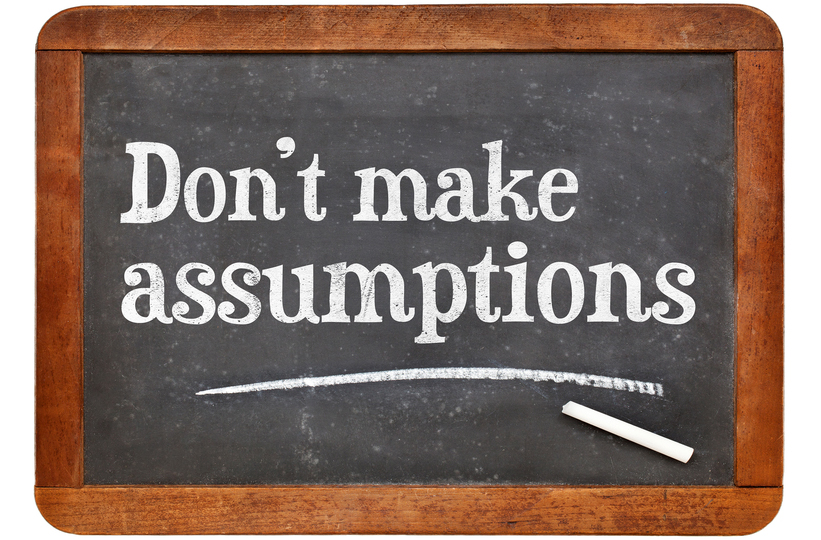Remember from your Gordon Model workshop, what GLOP stands for? Just in case you don’t, it stands for the “General Labeling Of People”.
Take a look at the list below and notice that each statement contains a judgment or GLOP.
1. She’s unfriendly
2. He’s a skeptic.
3. He’s a control freak.
4. She’s irresponsible.
5. You’re so easy to get along with.
6. She’s a little too intellectual.
7. He’s a team player.
There is a difference between what actually happens and your interpretation about those events. It is natural and normal for people to observe events and then make inferences, interpretations, judgments, and evaluations about them.
 However, many people confuse their interpretations with the facts of the situation. In the Gordon Model, we coach you to begin conversations with the facts – especially when there are problems.
However, many people confuse their interpretations with the facts of the situation. In the Gordon Model, we coach you to begin conversations with the facts – especially when there are problems.
The trouble with GLOPs is that they always include some guesswork about the other person’s intentions or motives – something that exists only within the other person’s head. As skillful as we may be in our interpretation of another person’s behavior, we simply do not know for certain what causes another person to behave in the way they do.
One danger of this is that we will stay stuck in our interpretations and fail to see more effective ways of communicating. Although, we cannot change past events, we are free to choose how we perceive and interpret events.
Perceptions are subject to influence by everything that we have experienced in our lives – where we were born, where we went to school, what our parents were like, our religion, education, – and tend to create a bias and a particular point of view about the actions of others.
Throughout our workshops, we coach you to distinguish between what you actually see the other person do or hear them say and how you interpret those actions. This does not mean that your interpretations are wrong or right. It’s just more effective to begin such communication with the facts – what we have actually observed.
More about GLOP’s:
- GLOPs are not “true.” They are guesses about another’s motives or intentions.
- GLOPs can hurt. People often don’t like being labeled.
- GLOPs limit our ability to see the whole person. Once we place a person in a category, it becomes more difficult to see their future behavior in any other light. They are stereotypes.
- GLOPs are contagious. When you use the GLOP, it becomes more likely that others will also.
- GLOPs are “sticky.” It is sometimes hard for the person to “shake” the stereotype.
- GLOPs can influence the other’s future behavior. The “self-fulfilling prophecy.” People often live up to or down to the label. “If you are going to treat me like a thief, I may as well steal from you.”
- GLOPs invite defensiveness. They often beg the question, “What do you mean by that?” or “Give me an example.
So, here’s a little interesting “test” for you: count how many GLOP’s you hear in one hour at work or at home. I urge you to ask the person who used a GLOP, what they personally saw or heard to make them think of their GLOP. Often, they will use another GLOP-see if you can get them to drill it down to the facts.

